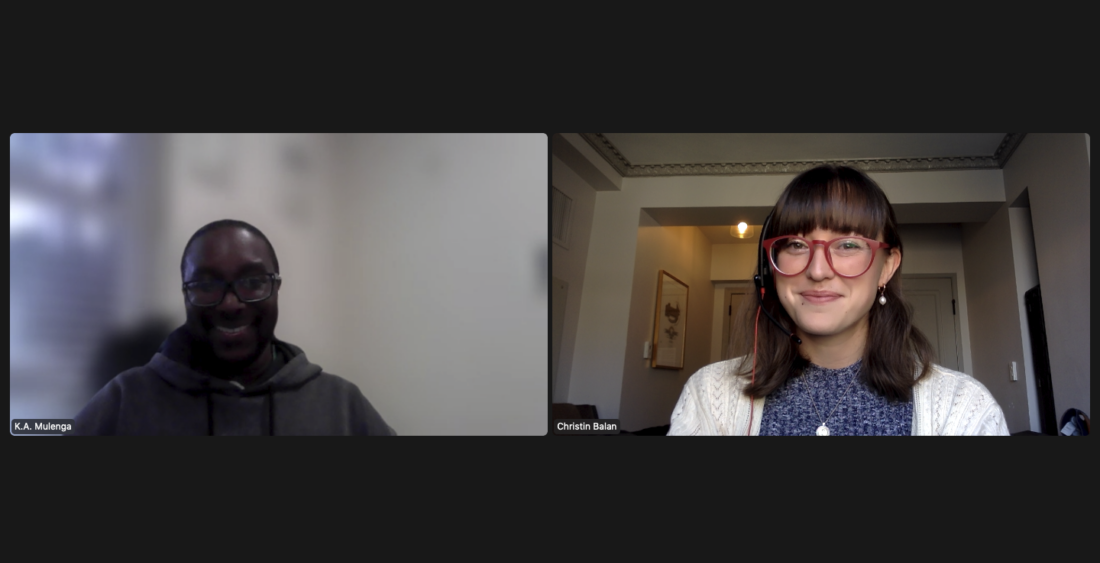In an interview with ii Host K.A. Mulenga, best-selling children’s books author, we talk about rediscovering his passion for writing, the people who inspire him to write, and his discovery of self-publishing. Join us in his upcoming Salon, “On Self-Publishing Books!”
“You have control. You answer to yourself.”
On Rediscovering His Passion for Writing
Looking at K.A. Mulenga’s publication history—21 self-published children’s books—I was surprised to learn that writing is a relatively recent career shift for him. Mulenga shares that he did start writing at a young age, when he was around ten years old and encouraged by school writing competitions, but that writing was relatively out of the picture for much of his adult life. Fortunately, his passion for writing was reignited by a conversation with his 11-year-old son. “We were on our way home from church and he was talking about a writing competition that was happening at school,” Mulenga shares. “That’s when I mentioned [to my family] that I used to write. Maybe I can help you out!” he said.
When he shared this with his family, he stated “my wife and my two daughters laughed… they just couldn’t believe it. ‘You used to write?’ they said. ‘Yeah, I used to write.'” He went on to help his son in his writing endeavors at school, mirroring himself as a young man, and Mulenga states, “that’s how it all started.” In the process of helping his son, he began to recall the very same stories he had written at that age; in fact, one of these stories written in his childhood went on to become his very first self-published children’s book, Donk and the Stubborn Donkey. “From there, it just took off!” Mulenga states. “The stories just kept coming out, and I decided to start publishing them.”
Prior to writing children’s books, Mulenga was an accountant, managing his own firm in Johannesburg, South Africa. However, when COVID peaked, he lost one of his biggest clients. “The finances went a bit south,” he shares. “But that’s when I started writing.” In hindsight, he can now see with objectivity, “I had fallen out of love with accounting. Come to think of it, I was never in love with accounting.” And though part of his ability to begin writing was born out of his struggling business, Mulenga says, “now that I have started writing again, my passion, I am really enjoying my day. My every day.” He has also felt the benefits spiritually. “I am a Christian,” he shares. “I didn’t used to pray as much as I do now.” Aided by the spiritual growth found in his writing, Mulenga shares that he is grateful for starting to build a stronger relationship with God.
On His Family and Other Inspirations
On his website, he shares that his late father and his late brother were also writers. “My dad died when I was seven,” Mulenga states, “so my memory of him is not that vivid.” However, as he grew up and was able to speak with his mother about his father’s history in journalism, Mulenga learned that he was the son of a trailblazer. “My mom told me that [my father] was the first black editor of the Zambia Daily Mail.” During his father’s life, Mulenga shares, “Zambia was still a colony of Britain,” with Zambia not gaining independence until the mid sixties. “He was a journalist then,” Mulenga says proudly. When Mulenga learned more about his fathers history and influence, he discovered that his father had also written two works of non-fiction in the political space.
He also learned, posthumously, that his brother was a poet. “We were the only readers of the family,” he says of himself and his brother, though Mulenga had was unaware that his brother had a passion for poetry. “The poetry I had only discovered after he had passed away.” Mulenga shares that he found “a lot of manuscripts in the house,” but his brother’s work currently remains unpublished.
When asked what some of the most influential books have been in his life, he shares influences both young and old. “From when I was a kid,” he states, “my favorite author was Roald Dahl. I loved The BFG and James and the Giant Peach. Those were my favorite two.” Speaking about Dahl, Mulenga states, “just the imagination of the man… to this day I’m still in awe.” Mulenga also states a more recent inspiration, Nelson Mandela’s famous autobiography, The long Walk to Freedom. “It has impacted me so much,” Mulenga shares of the autobiography, “how selfless a man he was. It’s just an amazing story.”
On Self-Publishing
When asked how he first set out to self-publish his children books, he admits that originally “I had no idea there was a thing called ‘self-publishing.'” Starting out, one of the primary reasons Mulenga went the self-publishing route was the dearth of major publishing houses in his home of Johannesburg, despite the population of over 5.5 million. “Surprisingly, for the huge population here, the reading culture and the publishing houses are so few. Especially for children’s books. How am I going to get my books published if there are only ten or fifteen major publishing houses?”
So Mulenga went the route of self-publishing. His journey has come far, from using an à la carte team (illustrator on fiver, editor from another source, cover design from yet another), to having a reliable, centralized team. “I found someone who does everything for me,” he says of his contact in Durban, a woman who has an efficient team of illustrators that help make his books a reality.
Though most of his experience as an author is through self-publishing his children’s books, he is also beginning to break into the traditional publishing space. Mulenga states “I was also approached by a publisher in South Africa to write a middle grade book,” sharing that he was able to sign a publishing deal with hopes of turning the novels into a series. With this, and his memoir based on his upbringing in Zambia in the final stages of editing, Mulenga’s writing career has allowed him to explore the pros and cons of both the self-publishing and traditional publishing worlds.
When asked what he is excited about discussing with his Salon attendees, he states he would like to know, “what do they want to get out of self-publishing?” Mulenga shares that one of the most important aspects for him about self-publishing is “you have control. You answer to yourself.” With young children’s books, he finds self-publishing especially important with the freedom to decide on the illustrations for his young audience. Though now experienced in both methods of publishing, Mulenga expresses his intentions to continue with self-publishing his authentic children’s books filled with valuable life lessons.
So in preparation for K.A. Mulenga’s Salon, ask yourself: what do you want on your personal journey in publishing?
We hope to see you there!
—ii Editorial
P.S. To follow K.A. Mulenga and his work, hop over to his website!

